Unveiling the Secrets of the Kikori’s Hidden Shark
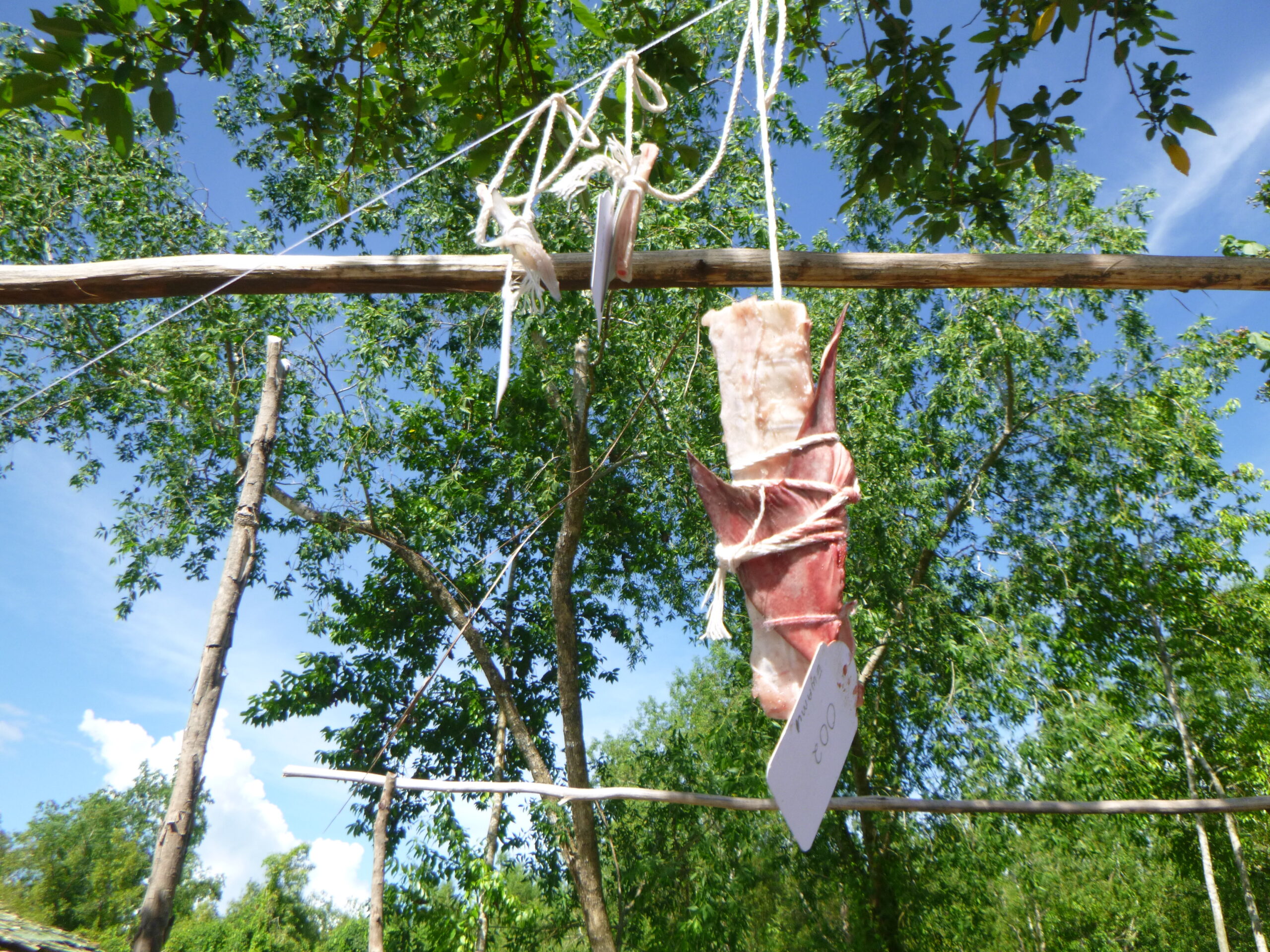
Winghead shark vertebrae collected for the project, hanging out to dry at the fishing camp. Photo © Yolarnie Amepou | Piku Biodiversity Network
The murky depths of Papua New Guinea’s Kikori River hide a secret – the endangered winghead shark. This unique freshwater dweller plays a vital role in the ecosystem, but scientists lack crucial knowledge about its age and growth, hindering conservation efforts. The Piku Biodiversity Network, funded by the Save Our Seas Foundation, is working with Dr. Michael Grant to bridge this gap.
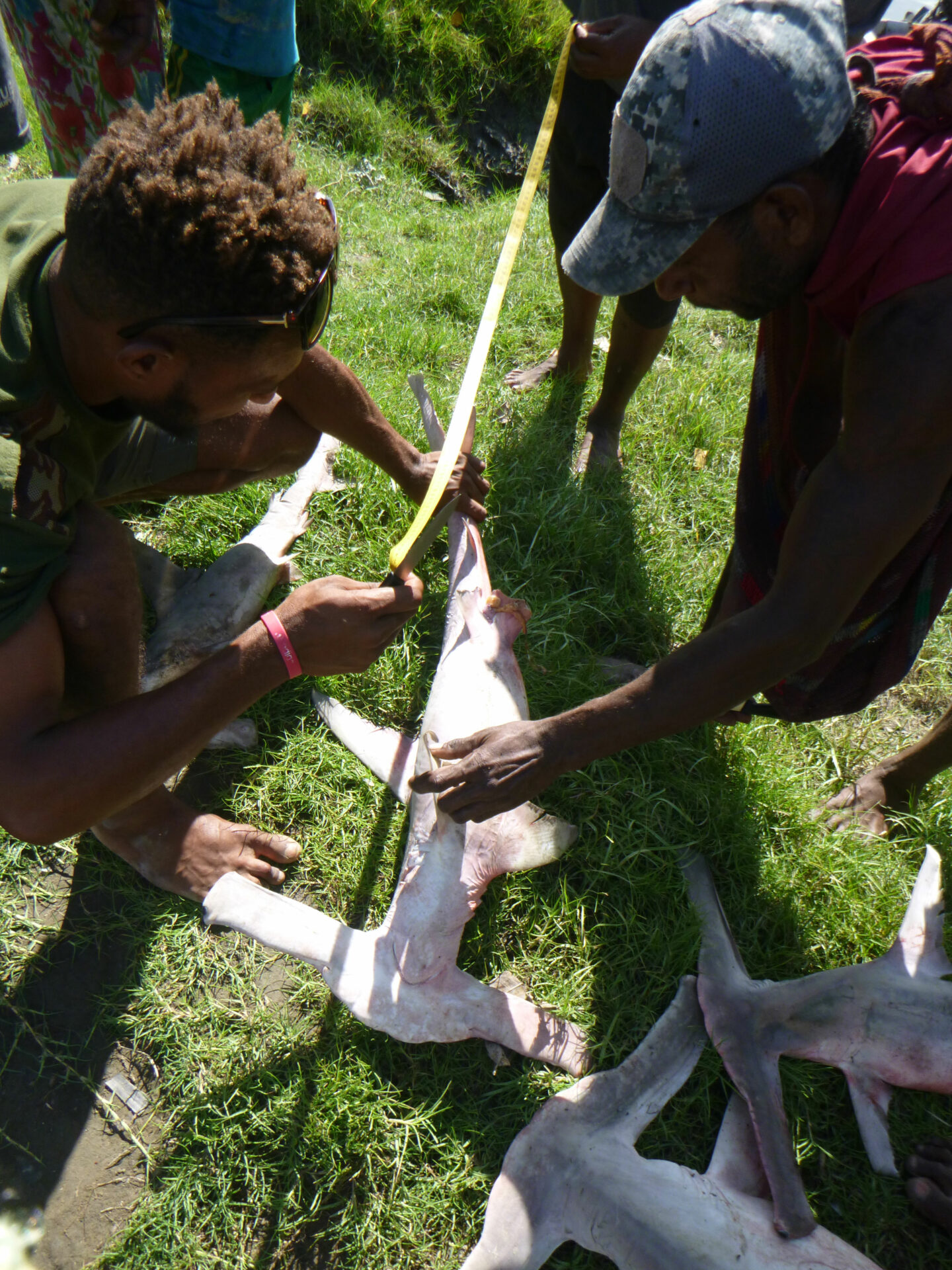
Bycaught winghead sharks measured upon arrival at fishing camp where they are brought to keep them out of the water during the fishing tide which last 4 to 5 days a month. Photo © Yolarnie Amepou | Piku Biodiversity Network
Research is difficult due to the elusive nature of the winghead shark and the challenging Kikori environment. Traditional methods for determining shark age are unreliable for this species, leaving scientists in the dark about population health. Recognising this urgency, the Piku Network is now actively involved.
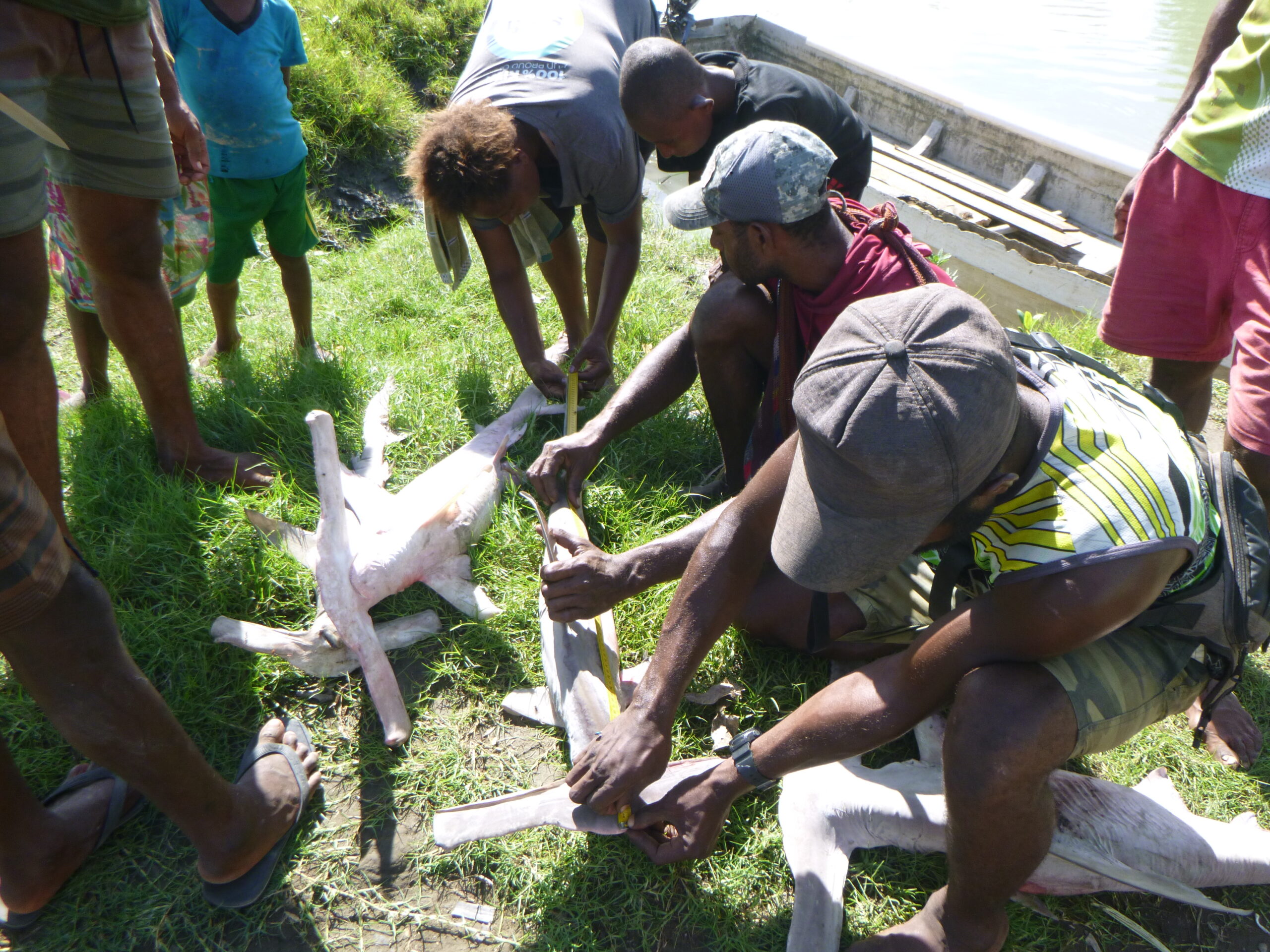
Fishers assisting their village designated winghead shark recorder with the measuring of bycaught winghead sharks. Photo © Yolarnie Amepou | Piku Biodiversity Network
A key approach involves close collaboration with the local fishing communities. By monitoring their catches and collecting data on opportunistically caught winghead sharks under researcher supervision, valuable scientific data is gathered. Information on size, sex, maturity stage, and even reproduction is meticulously documented. This not only provides crucial scientific information but also fosters a sense of responsibility for the winghead shark population within the communities. Participating in data collection empowers these communities to identify potential problems and initiate discussions about community-led conservation efforts.
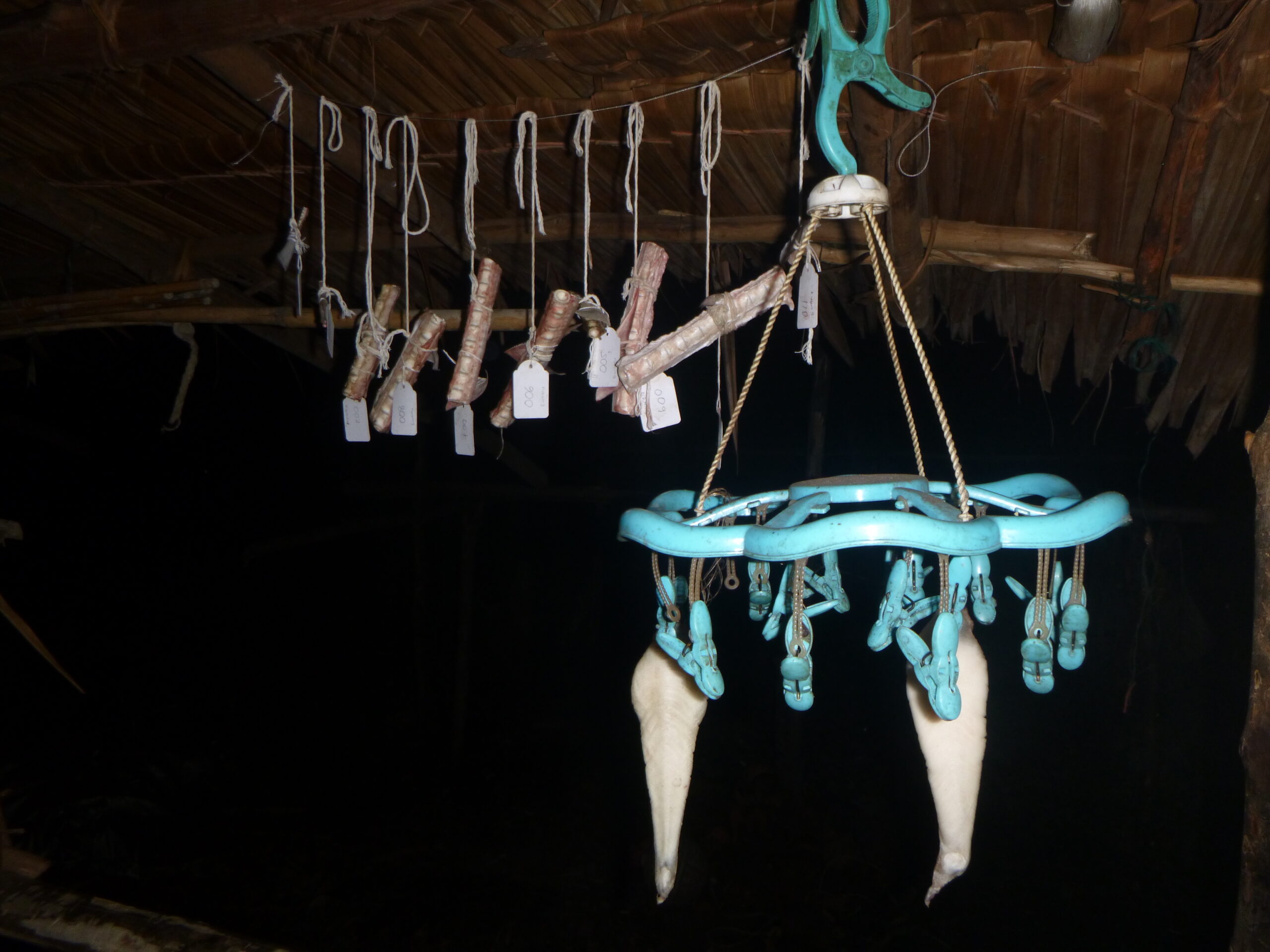
Winghead vertebrae and fin samples hanging beside fishmaw, the product whose fishery is causing the demise of the winghead sharks in the tens of thousands across the Gulf of Papua, Papua New Guinea. Photo © Yolarnie Amepou | Piku Biodiversity Network
The urgency is heightened by alarming bycatch numbers. During fishing season (November-March), winghead sharks are unintentionally caught in the thousands. This emphasises the need for a deeper understanding of the population to ensure its survival.
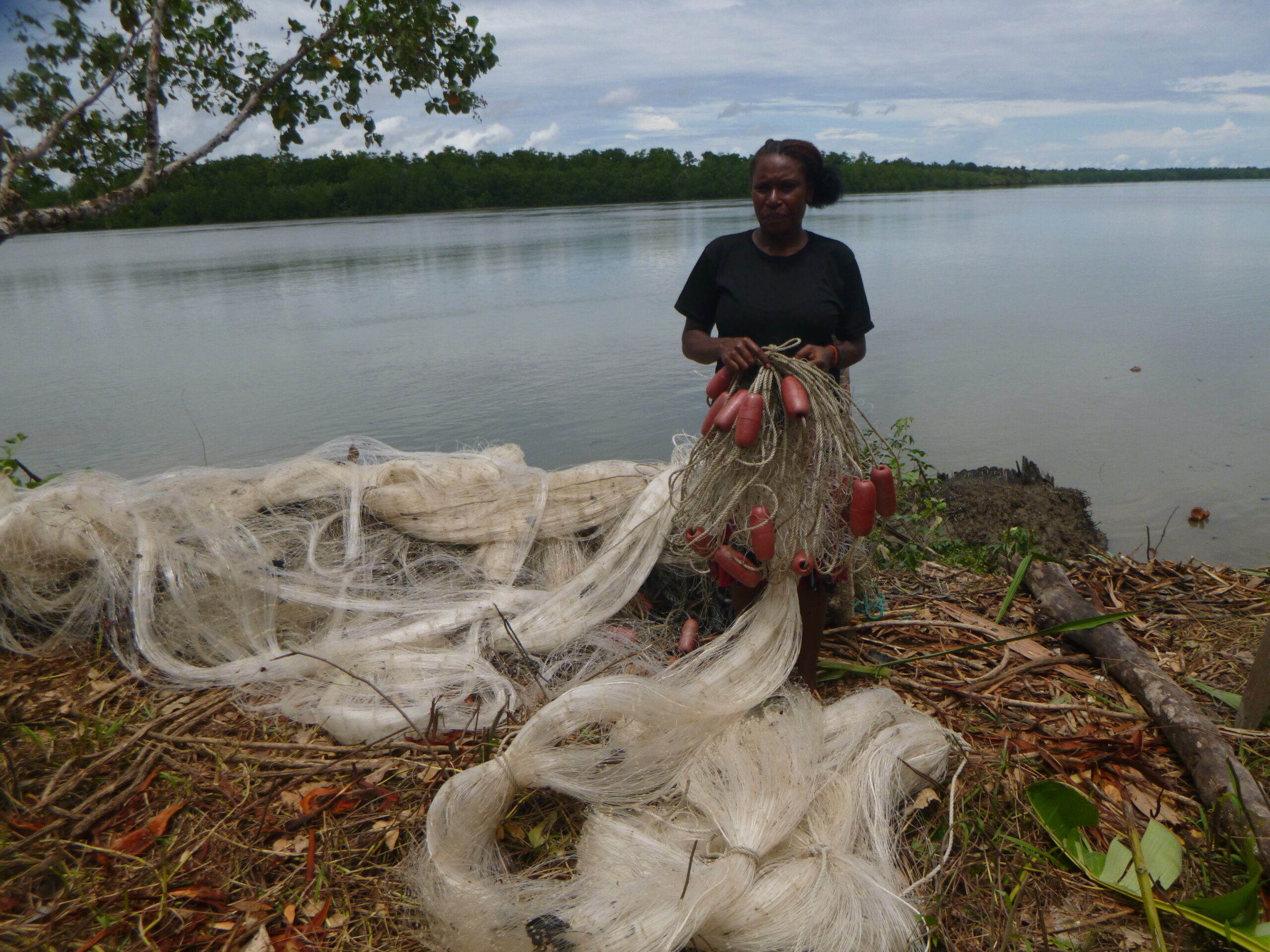
Fisher Julie, showing her nets to be soaked in water during the fishing tide in the Kikori delta. Photo © Yolarnie Amepou | Piku Biodiversity Network
Understanding the winghead shark’s age, growth patterns, and reproductive capabilities is crucial for its conservation. With this knowledge, scientists can assess threats like the recent swim bladder fishery, a major contributor to bycatch. By understanding the population’s age structure, reproductive potential, and overall health, researchers can predict how sustainable fishing practices can be implemented or how stricter regulations might be needed.
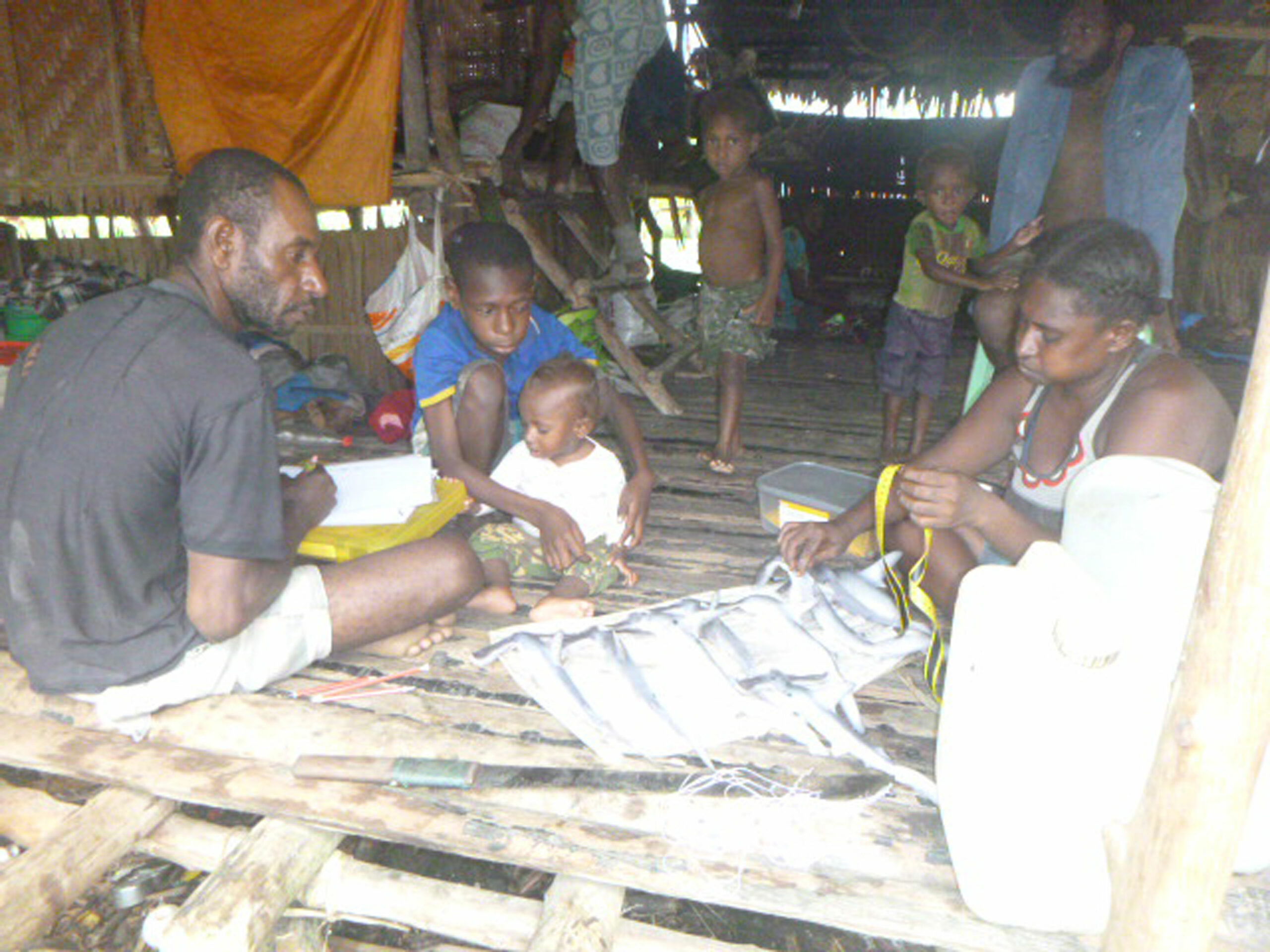
A family prepares Winghead samples for the project. The wife measures, the husband records while the children watch on. Photo © Yolarnie Amepou | Piku Biodiversity Network
The knowledge gained extends beyond the Kikori. Winghead sharks are just one of many freshwater shark species facing similar threats. The lessons learned here can be applied to other vulnerable species, informing conservation strategies across diverse ecosystems. The plight of the winghead shark serves as a reminder of our interconnected world. By actively addressing the knowledge gap, the Piku Biodiversity Network, the Save Our Seas Foundation, and Dr. Michael Grant are working towards a future where the unique biodiversity of the Kikori thrives.
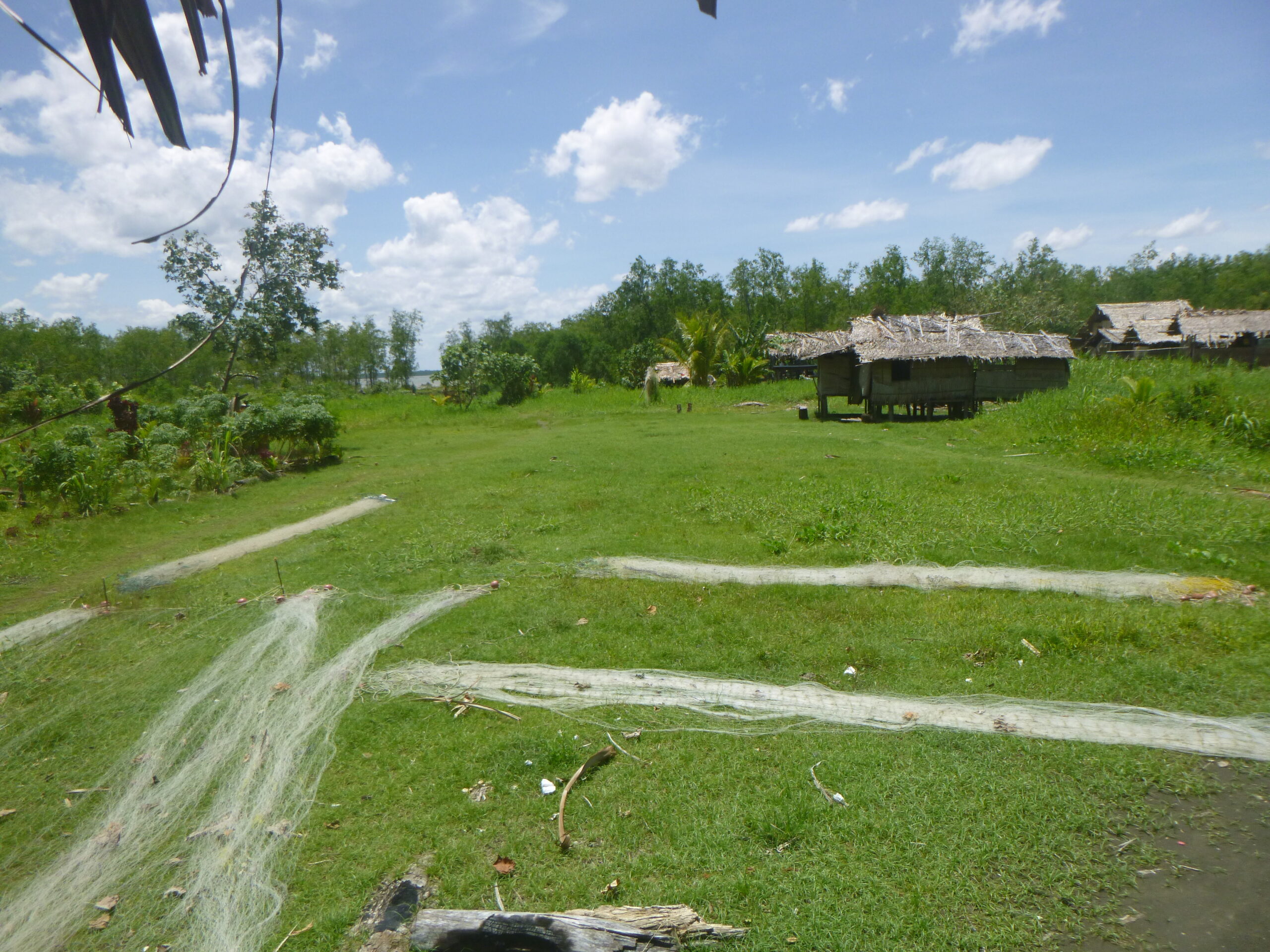
A photo of Ewamu fishing camp in the Kikori River Delta in the 2023 fishing season which begins in November. Photo © Yolarnie Amepou | Piku Biodiversity Network
